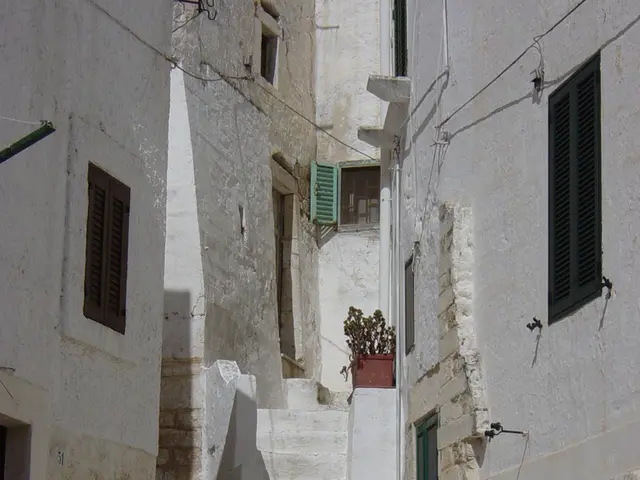Economic strain heightening amidst political instability in Georgia
Georgia's political turbulence, fueled by the government's push for a 'foreign agents' law, has taken a backseat, but the nation's economic health is in shambles, reeling from recent events. Investors are growing anxious due to the government's shift away from the West, which is driving down the value of the national currency, the lari.
Since the year's start, the lari has shed over 6 percent of its value, reaching its lowest point since 2022. To bolster the lari, the national bank has offloaded more than $160 million from reserves within months. The 'foreign agents' law, which came into effect in early June following MPs overriding a presidential veto, has stirred this turmoil.
Data published by the National Statistics Agency on June 10 revealed that foreign direct investment for 2024 plummeted by 64 percent compared to the same period in 2023. A World Bank report, "Global Economic Prospects," released on June 12, offered a hopeful forecast for the Georgian economy, slightly increasing its estimated 2024 growth prediction from a January anticipated increase of 4.8 percent to a June projection of 5.2 percent growth. Yet, the country's growth rate is projected to be lower in 2024 and 2025 compared to previous years, reflecting a regional slowing growth pattern as the post-Covid mini-boom wanes.
Officials from Georgia are attempting to appease investors by assuring them that the country's business-friendly atmosphere remains unchanged. Economy Minister Levan Davitashvili assured reporters in early June that the 'foreign agents' law would have minimal impact on Georgia's long-term economic performance. "This law neither strengthens nor weakens [the investment climate], and has nothing to do with investments at all," Davitashvili stated.
The country's largest trading partners and investors, such as Turkey, Russia, and China, are unlikely to view the 'foreign agents' law as a threat to their interests in the country and are expected to maintain existing economic ties. However, these nations are grappling with their own economic struggles, making it difficult for them to offset any dip in European and American investment interest in Georgia.
Independent economist and politician Roman Gotsiridze predicts gloomy economic days for Georgia. "If this continues, in fact, Georgia's economy will collapse," he said on June 10, referring to the significant year-on-year decline in FDI. "A decrease in foreign investment means a rapid depletion of the National Bank's reserves, devaluation of [Georgia's currency], rising prices, mass emigration, and poverty."
Georgia's strategic positioning regarding geopolitical alignments and trade routes plays a significant role in its economic challenges. The Middle Corridor, a trade route connecting markets in China and Europe, is part of a broader strategy to bypass Russia and Ukraine in trade between Europe and Asia. If successfully developed, the Middle Corridor could boost Georgia's economy by increasing trade, diversifying trade routes, and stimulating economic growth. However, the route's success hinges on maintaining stability, improving infrastructure, and effectively managing geopolitical risks.
- Amidst the economic struggles, the Georgian government is attempting to reassure investors about the country's business-friendly environment, with Economy Minister Levan Davitashvili stating that the 'foreign agents' law will have minimal impact on Georgia's long-term economic performance.
- Despite Georgia's largest trading partners and investors, such as Turkey, Russia, and China, being unlikely to view the 'foreign agents' law as a threat to their interests, independent economist and politician Roman Gotsiridze predicts a potentially catastrophic decline in the country's economy due to a significant decrease in foreign direct investment.
- As Georgia navigates its economic challenges, it strategically positions itself with the Middle Corridor, a trade route connecting markets in China and Europe, which could boost the economy by increasing trade, diversifying trade routes, and stimulating economic growth, provided that stability, infrastructure improvements, and effective management of geopolitical risks are achieved.







